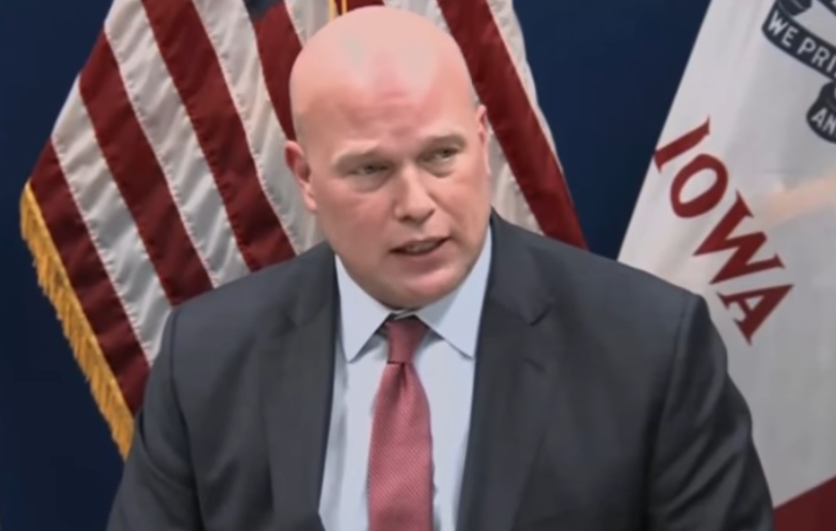The state of Maryland has asked a federal judge to block acting Attorney General Matthew Whitaker from performing his duties, arguing that the law somehow prevents President Donald Trump or any president from appointing an acting Attorney General on the basis that the Vacancies Reform Act of 1998 is essentially unconstitutional.
Article II, Section 2 of the Constitution provides that “[The President] shall nominate, and by and with the Advice and Consent of the Senate, shall appoint Ambassadors, other public Ministers and Consuls, Judges of the supreme Court, and all other Officers of the United States, whose Appointments are not herein otherwise provided for, and which shall be established by Law…”
It also provides that “the Congress may by law vest the appointment of such inferior officers, as they think proper, in the president alone, in the courts of law, or in the heads of departments.”
Which is exactly what Congress did with the Vacancies Reform Act of 1998, giving the President to determine who the acting Attorney General, or the acting head of any department will be while the Senate considers a permanent replacement.
5 U.S. Code § 3345(a)(3) provides that “the President (and only the President) may direct an officer or employee of such Executive agency to perform the functions and duties of the vacant office temporarily in an acting capacity… [who has] served in a position in such agency for not less than 90 days…”
In addition, although Congress specifically stated in 28 U.S. Code § 508 that in the event of a vacancy at the Attorney General that the Deputy Attorney General “may” serve as the acting Attorney General, it also clearly provides that “for the purpose of section 3345 of title 5 the Deputy Attorney General is the first assistant to the Attorney General.”
Meaning, the President could name the Deputy Attorney General to be acting Attorney General temporarily, without Senate confirmation, or he could go the Vacancies Reform Act route, and name somebody from within the Department who meets the criteria.
It’s not even a close call. It is something that Congress explicitly provided for so that departments and agencies would still be subject to political oversight by the President in between Senate confirmations. The President gets to choose the acting Attorney General based on the rules that Congress laid out.
In fact this is the way it has always been done. A Justice Department memo advising President Trump that he had the legal authority to name Whitaker to acting Attorney General cited historical precedents for when Congress had allowed stating, “Congress did not first authorize the President to direct non-Senate-confirmed officials to act as principal officers in 1998; it did so in multiple statutes starting in 1792. In that year, Congress authorized the President to ensure the government’s uninterrupted work by designating persons to perform temporarily the work of vacant offices. The President’s authority applied to principal offices and did not require the President to select Senate-confirmed officers.”
The memo added, “In our brief survey of the history, we have identified over 160 times before 1860 in which non-Senate confirmed persons performed, on a temporary basis, the duties of such high offices as Secretary of State, Secretary of the Treasury, Secretary of War, Secretary of the Navy, Secretary of the Interior, and Postmaster General.”
Again, if Congress had provided that the role of Acting Attorney General could only be performed by a Senate-confirmed replacement — and it could pass such a law — then that would be the rule. It has not done so.
But for a court to intervene and impose such a requirement would not only overturn more than 200 years of legal precedent, it would impose unconstitutional authority upon the courts to name officers of the United States. The default position is that President, and only the President, under Article II, gets to nominate officers, subject to Senate confirmation.
Now, if Congress had said that courts name inferior officers, that’d be a different story. Article II, Section 2 does provide that “the Congress may by law vest the appointment of such inferior officers, as they think proper, in the president alone, in the courts of law, or in the heads of departments.” But in this case, Congress gave the President the power to appoint temporary replacements to senior positions in lieu of permanent replacements, not the courts. It had the option to give that power to the courts, but declined to do so.
Which is why Whitaker’s appointment will stand for the 210 days from the date former Attorney General Jeff Sessions resigned, the time limitation the law provides for. This is not even close.
Robert Romano is the Vice President of Public Policy at Americans for Limited Government.







